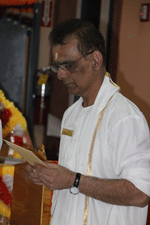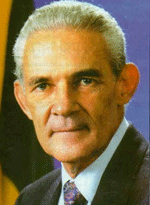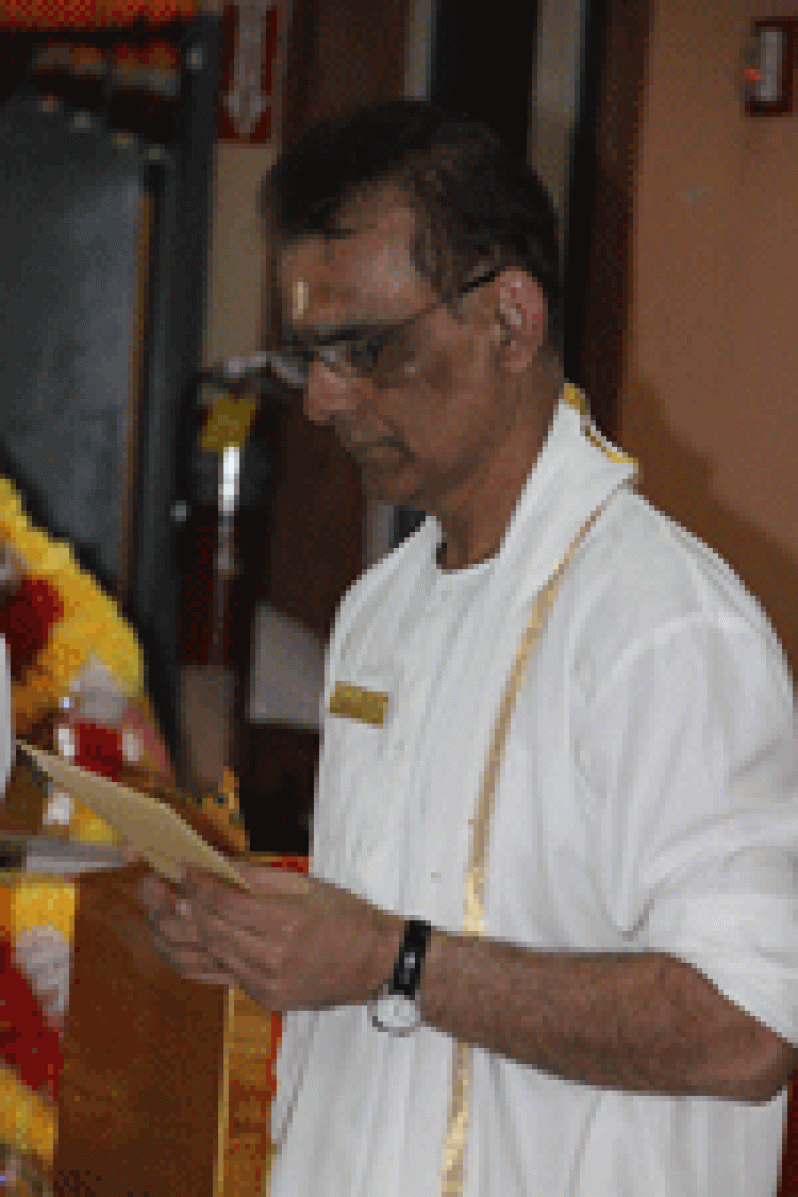AS THE government and people of Trinidad and Tobago participate in official celebratory activities this Friday, to commemorate half a century of political independence from British colonialism, even the sharpest critic of Dr. Eric Williams would find it extremely difficult to ignore the tremendous intellectual and political contributions that have inscribed him on history’s page as ‘Father of the Nation.’ Three weeks earlier this month, the government and people of Jamaica were also occupied in similar independence celebrations. And Prime Minister Kamla Persad-
 |
 |
 |
 |
 |
Bissessar was there, standing shoulder to shoulder with her Jamaican counterpart, the irrepressible ‘Sister P’ (Simpson-Miller) to demonstrate that infectious West Indian friendship bond that binds us as the peoples of ‘One Caribbean.’
Sadly, the degrading dimension of colonialism that partly explains the failure of the experiment of a West Indian Federation, which was buried in the ballot boxes of a myopic Jamaica referendum 51 years ago, continues to haunt us in different ways.
Most notably, perhaps, by the persistent negative attitudes and policies that, varyingly, keep Jamaica and Trinidad and Tobago —the first two to shed the yoke of colonialism — tied to Britain’s Privy Council as their final appellate institution.
Fifty years after securing, with Britain’s encouragement, political independence, both Jamaica and Trinidad and Tobago continue with an endless words game about accessing the Caribbean Court of Justice (CCJ).
This is not a legacy that Eric Williams would have wanted to perpetuate, but which remains the political burden being sustained by the ‘politricks’ of the People’s National Movement and today’s “People’s Partnership” administration, which basically, is the United National Congress (UNC) in new clothing and struggling, against the odds, to make its own contributions.
Different ‘fighters’
Neither Norman Manley nor Eric Williams — national heroes of their respective nations—would be recalled, with accuracy, as “freedom fighters” for political independence from British colonialism. In contrast, for example, Dr Cheddi Jagan, with whom they often locked horns on regional political issues, including a political federation with dominion status.
But if Jagan, undoubtedly the “father” figure of Guyana’s independence struggle, was as often, unflatteringly labeled, the ‘enfant terrible’ of British colonial politics in the English-speaking Caribbean, Eric Williams would forever be remembered for his admirable political battle against the USA in retrieving for Trinidad and Tobago the Chaguaramas naval base.
And consistent with a pan-Caribbean vision that kept him committed to regional cultural and economic cooperation, Dr. Williams had sufficiently recovered from the trauma of the failed West Indies Federation (remember his famous political arithmetic of “one from 10 leaves nought”?) to host the inaugural summit of the Caribbean Community at Chaguaramas — where else!!
Though at times quite disagreeable, Williams was to be a prime mover, along with Barbados’ Errol Barrow, Guyana’s Forbes Burnham, Jamaica’s Michael Manley and Antigua and Barbuda’s Vere Bird, in the anchoring of CARICOM with the promise of transformation into a seamless regional economy. This remains, in 2012, a work in progress that needs to be intensified.
Williams perhaps did more than quite a few of his time to promote so much of what’s positive about our “oneness” as a Caribbean people, and in firmly anchoring independent Trinidad and Tobago as a sub-region of the so-called ‘Third World’, as CARICOM nationals continue to impact the global family with their intellectual and cultural contributions.
An independent Trinidad and Tobago owes much to Eric Williams’ vision and commitment to the educational and cultural advancements that distinguish this region. Yes, that commitment, as ironic as it may now seem, is also rooted in the nation’s robust identification with press freedom, freedom of expression.
On this 50th independence anniversary of Trinidad and Tobago, homeland also of a section of my own family, let me recall my moment as one of the few (I have been told perhaps one of three) journalists of the Caribbean to have had the privilege of a full-length interview with the author of ‘Capitalism and Slavery” and ‘father’ of the nation.



.jpg)










